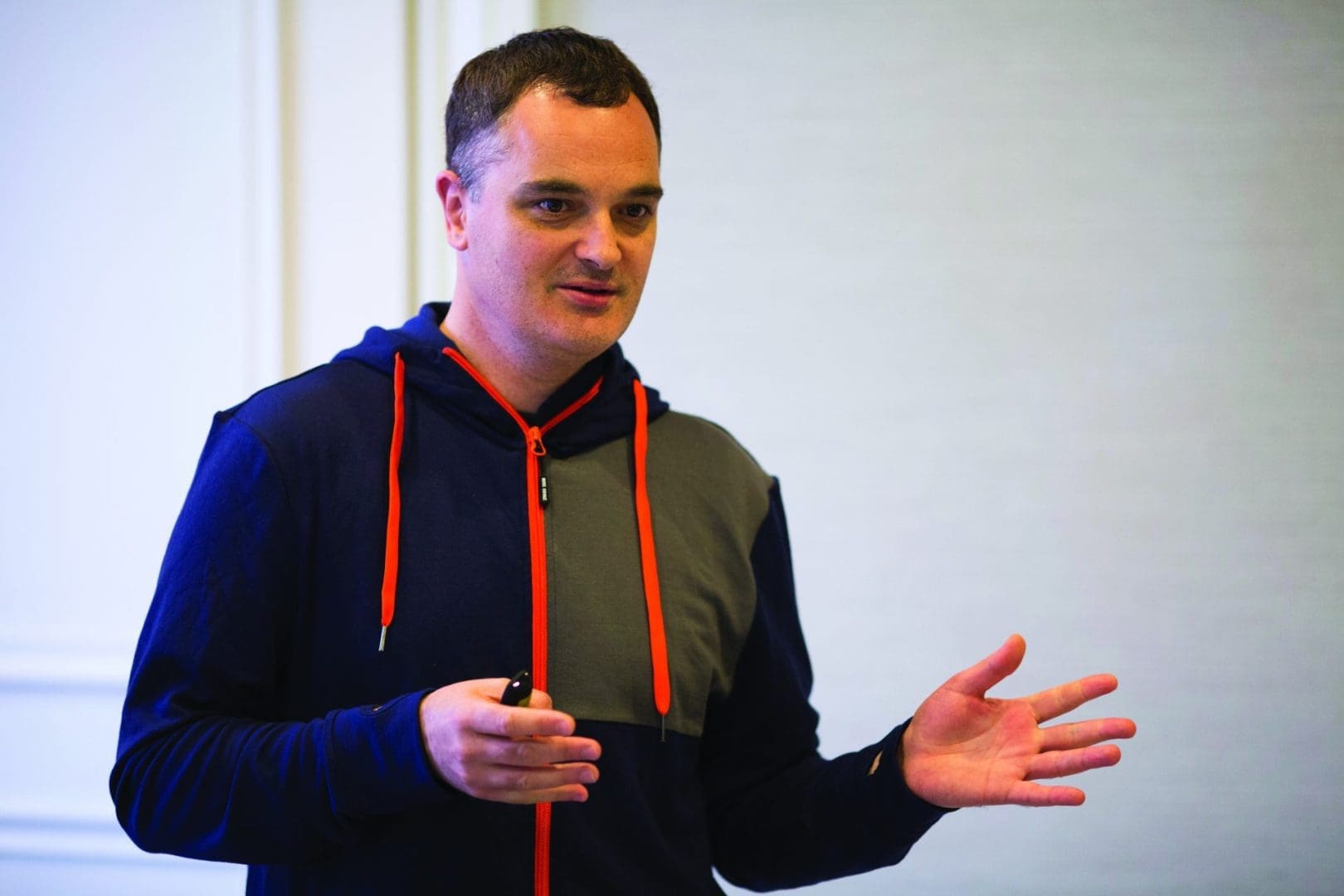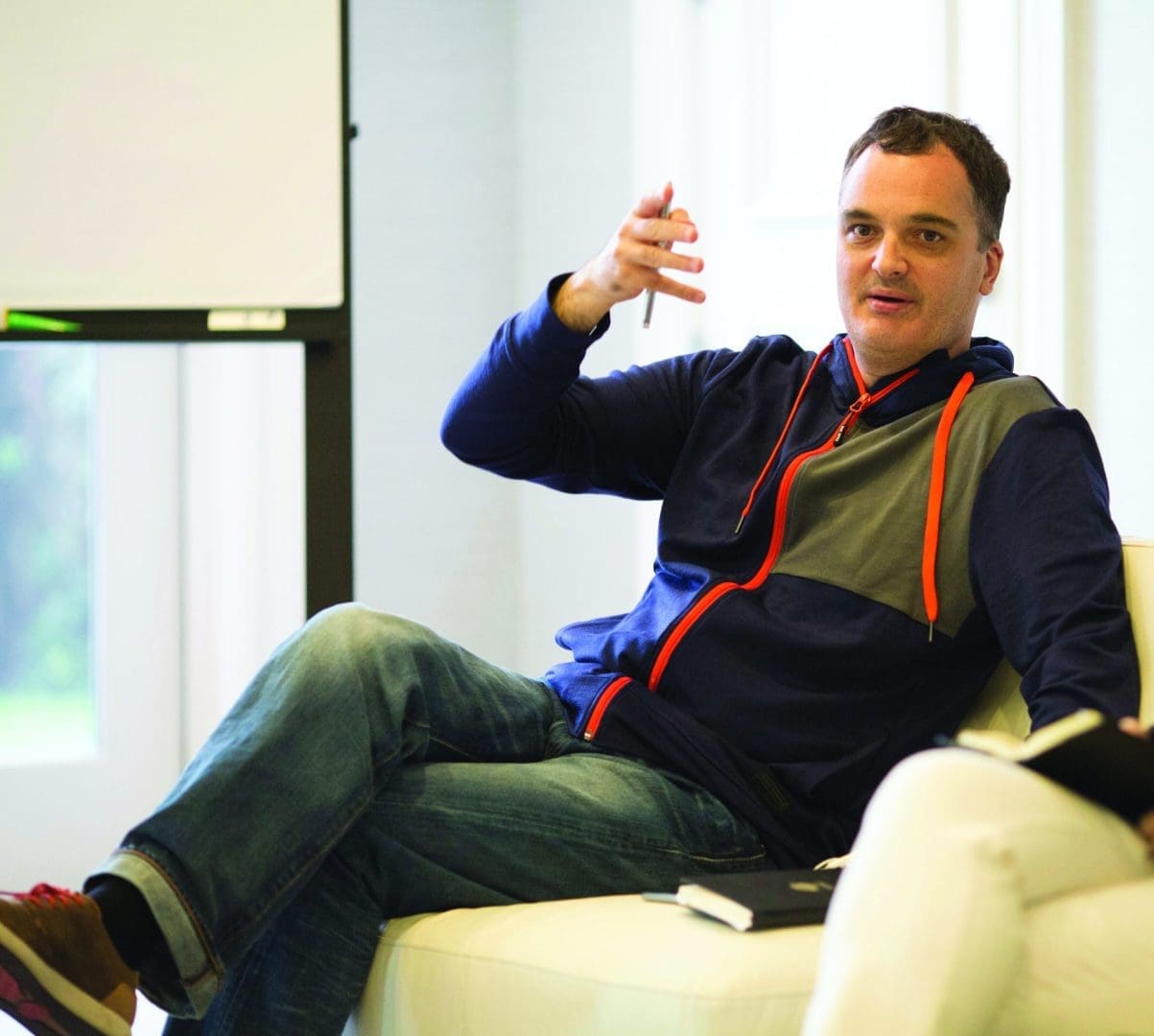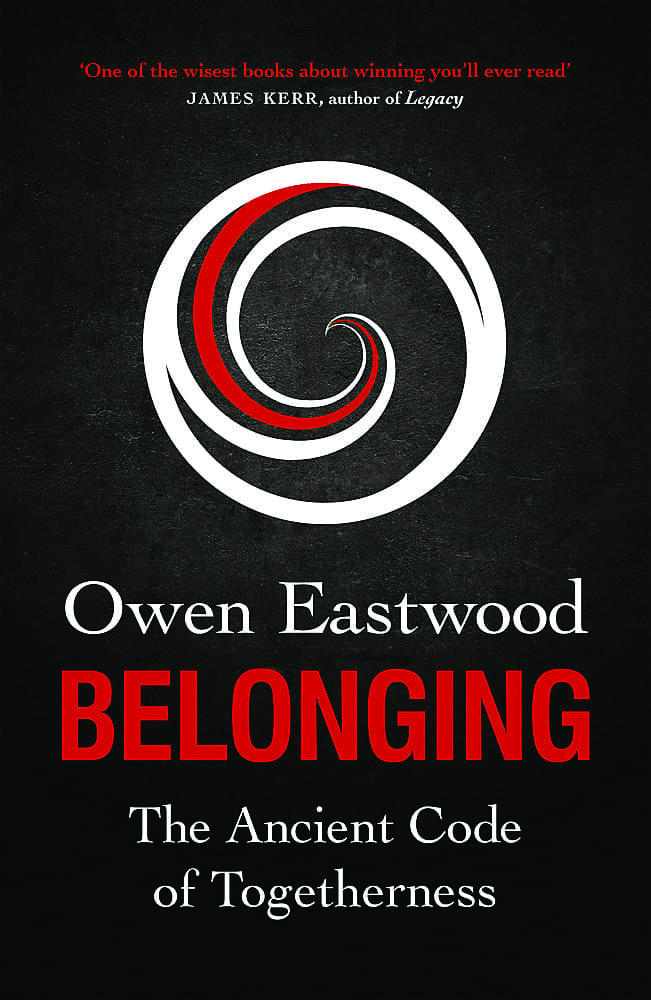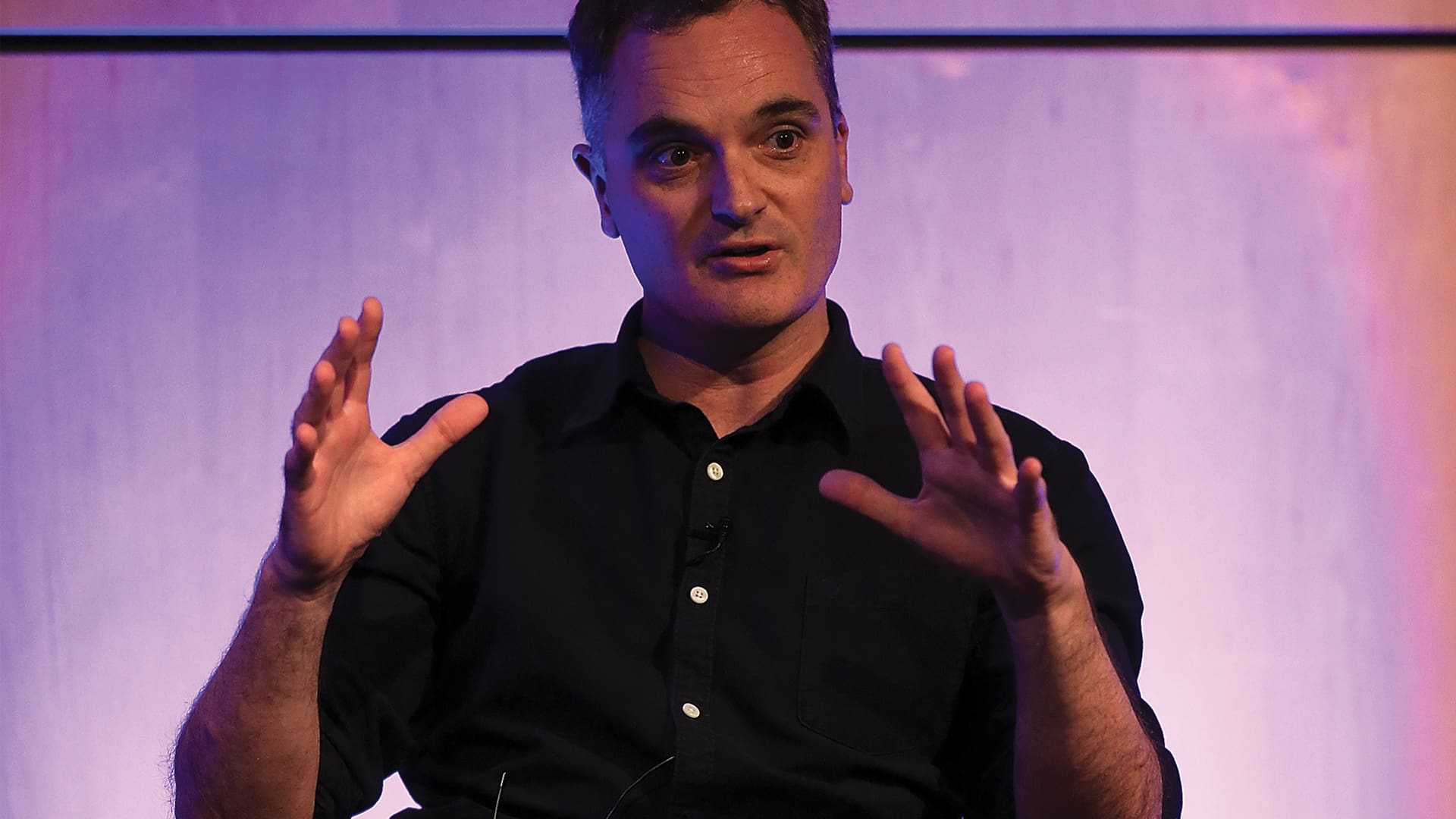Owen Eastwood: Ancient Wisdom For Future Success
One of the world’s most sought after performance coaches, Owen Eastwood, (Ngāi Tahu) has made a global impact across a number of fields by drawing on the universal human need to belong and tapping further into the idea of Whakapapa and an “unbroken and unbreakable chain of people who share a sacred identity and culture.”
Eastwood is working with the English football and British Olympic teams and has previously worked with the South African Cricket Team, the Royal Ballet School, the New Zealand Warriors and even NATO to help define shared purpose, unleash talent and define future success all within the context of belonging.
Eastwood talks to us about tapping into his own ancestral connection to help power his incredible journey and capturing this in his inspiring new book, aptly called Belonging.
How on earth do you get a word of mouth intro into NATO?
Luck. I think momentum is a really important idea that people probably don’t appreciate enough.
I was engaged by Saatchi & Saatchi, who were reviewing Adidas for the sponsorship of the All Blacks. I was one of many, many people on that project, but I was asked to pass comment after talking with the All Blacks themselves around how some Māori spiritual ideas impact on their culture and I translated it for Adidas. That then led onto getting an approach from the Chelsea Football Club. And then someone at Chelsea speaks to someone from the South African cricket team, who then makes contact.
The psychologist for the South African cricket team gave a keynote speech to the British Psychologists Association’s annual conference about how you change culture in sports teams. He played a film that I’d made for the South African cricket team as part of the work with them to frame how we could think about this differently. And then some of the consultants who were with NATO were at that conference and they saw this film and felt it was pretty powerful.
Research papers have been written about the South African cricket team and the work there. And then you’re talking to NATO. You’re on the edge of so many things that really start to shape a lot of our culture.
My job is to not pontificate or be a philosopher, or even an observer or a witness. My job is to be a catalyst to make things happen. I hope it comes across in the book. I can’t sit around talking in abstract ways, we’ve got to crack on and do something.
If we’ve got a tournament to prepare for, or we’ve got a team that is really suffering or a team that’s best in the world, whatever it is; we’ve got a certain context and we’ve got to crack on. We’ve either got to rebuild ourselves up to be competitive again. The Harlequin rugby club, who I work with now, won the English Premiership this season, so now we’ve got a challenge of trying to sustain that and compete amongst the best teams in Europe.
There are some practical situations where you’ve got to do something. People aren’t expecting me to turn up and be a philosopher king or poet. They’re thinking, ‘Here’s the space. What ideas have you got? What do you think we could be doing? What can you bring to the table? And let’s just crack on and start doing’.
There’s this pressure to crack on and go forward, but a lot of what you talk about is also about standing back, laying things out and then rebuilding again. Can you talk a little bit about that process for you; taking the time to go back so that you can go forward?
For me, whakapapa is just a beautiful blend of being anchored in something from the past that is powerful. But at the same time, we’ve been given the opportunity to renew it when it’s our time. I absolutely love that. I think that what gets the best out of people is making you feel there’s substance around you. That you’re a part of something special. But it is on you to turn up and to not just maintain something, to actually build on it. I’d say that’s a brilliant way to frame life, whether it’s part of a family or part of a business or part of a culture or whatever.
One thing I’ve learned is that in my work, I didn’t read this in a research paper or in a book, I had to learn it myself, but what I did learn is that because that 2010 Protea fire camp was so powerful and everybody bought into it so much and it really contributed to a very successful period for the team over the next four years. In my mind, because I just still was quite inexperienced, I felt like we’d nailed it. The way we talked about our purpose or the way we had our three anchors, which were our values, the way we spoke about honesty, and the type of environment with the rituals. So when the team drifted away after the 2015 World Cup for a year or so, my mindset was that we’ve all got to get back together and we’ve got to go back to what that articulation was and get everyone to recommit to it.
I actually learned on the job and in that camp in 2016 that that’s not what was required at all. There were actually very few individuals who were still in the room from that previous period. So what I needed to do as a facilitator is to actually just shut up and listen and give them the space, the young guys in particular, to articulate what it is about this team that you think is special. What is it that you think we could do to strengthen it? Just that pure whakapapa way of the sun shining on us, just asking them.
That was a great learning experience for me, because I did go into that camp thinking my job is to recommit everybody to the holy grail. But then I learned that that wasn’t the case. That was a really good example, the players actually wanted to play a more aggressive style of cricket. The traditional Afrikaan’s approach is quite risk-averse, quite cautious, somewhat defensive. There are interesting cultural reasons for that mindset, which I explained in the book.
But this generation doesn’t wanna play like that; they want to play differently. So the culture was evolved to enable them to perform under the sun in the way they wanted to. That was a really huge lesson for me.

Is there something that any organisation should be taking from that example? Should the vision be more malleable?
Absolutely. In all groups, including New Zealand itself, I think there’s a real need to understand what’s really cool about our story to this point.
But then do we just want to replicate what we did in the forties and fifties and sixties and 1920s and 1880s? Of course, we don’t. We’re in a different context with different types of people. We’re a different mix of people. We need to figure out what the story will be ourselves.
Some of those New Zealand traits, some of those things that anchor us will possibly continue, like our humility. I think we are a country which has got a genuine community drive, a drive to be part of a community, the collective. I think we’ve got a collectivist attitude, which I really like. We’re humble. I like those traits, but there are other traits which maybe we need to move away from. For example, not showing weakness, which is what I grew up with and which was very much part of that going back a long way.
You show no weakness and you don’t emote and you don’t show fear. If you don’t understand something, you shut up and just take it. I would hope my children and their generation now would go, ‘You know what? We love being a Kiwi. We love these anchors. But that one, no. We respect what came before, but we’re moving on from that one’. If you’re suffering or you don’t understand something or you’re feeling emotional and you can’t quite label it or whatever, then you speak up.
To me, that’s no different than a small working team or a sports team. It’s more motivating if people have complete buy-in to our culture, rather than just saying you need to behave in a way which is consistent with what those who came before you did. In some ways, it’s like a conformist culture. It’s not really a belonging culture.
We can still be stoic and it’s hard often to be vulnerable. It seems like so many of our organisations are still built where you don’t want to stick your hand up in a meeting and say, ‘I’m really not sure about this’.
A hundred percent. It’s ubiquitous. As a leader, you have to disrupt that. You can’t just say, ‘If you’re feeling this or feeling that, tell us’. That’s not enough, you’ve got to actively disrupt it. The first way you do that is by just really good role modelling, being vulnerable yourself.
If something isn’t going well, like right now in New Zealand with the lockdown. The traditional Kiwi approach for a leader, particularly a male leader, might be to be quite stoic. ‘Let’s crack on with it. We don’t want people to feel sorry for themselves. We’ve got a lot of work to do, just get your head down and get onto it. I don’t want people mucking around at home.’ That sets the whole tone for everything.
I think that there are examples where the way you deal with these situations will have massive cultural reverberations, not just this week, but for years ahead. But if it’s stoical and it’s showing no weakness and it’s sort of belligerent and unempathetic, then I think that sets back your culture for a long time as well.
I can see it over here in the UK. I’ve worked with some businesses here, talked to leaders here, and the culture has become stronger over the lockdown when they haven’t been in office for a year and a half. Because of the quality of the leadership and the quality of the conversations they have, even if it’s on Zoom, they’re just infinitely better than what they were when they were in an office.
If I want to have a meeting with the Chief Executive, I’d never have a chance and how would I normally? But if we’re all on Zoom, why can’t I? Why can’t there be a space there where I get to see them and hear from them?
Those who have taken that opportunity now, have strengthened their culture and their business during this period. But the ones who have tried to either keep in the shadows or delegate leadership down to the others and not really drive it themselves, I think those are the ones in which things may not be easy when everyone gets back into the office.
Maybe there’s something about Zoom and being in your lounge with your kids running rounds that seems to level out any hierarchy and really bring in some of that family and home thing as well. Do you get the sense that there will be this shift for a lot of businesses that will really change the culture?
It’s interesting because New Zealand and the UK have had very different experiences. At the moment here, we’re in the so-called freedom stage where it’s pretty normal. If you look at the sports you see on TV, the crowds are full, people aren’t wearing masks, which seems a little bit crazy to me, but it is what it is. We had a lockdown in the UK which went on for a very long time. So, what I would say from here might not be that applicable to New Zealand. But, yes, there were some nice things around getting to see your colleagues and bosses as humans in some ways, because you could see into their homes and sometimes you might see their families. I wouldn’t over-exaggerate that, there was an element of that, which is possibly a good thing.
I actually think over here in the UK, because the lockdown went on for so long, there became a real fatigue around it. It became a little bit less cute to have a toddler walk into the room after six months of lockdown, than it did on day six of lockdown. People here now realise that there is a low appetite for people to just go and commute back into the office like they did for years and years and years; employees do not want to do that. But at the same time, there needs to be some form of belonging to a group and a team if you’re going to really create those relationships and that trust to be able to work well together.
That’s what people are trying to just work through now. I get quite a lot of business leaders who are making contact with me just to help them think that through. They’ve just got to find your rhythm. The old one, I just don’t think it’s going to happen again. People are going to want to work from home one or two days a week, at least.
From a team culture point of view, for a lot of businesses and a lot of teams, that would be very problematic. People need to spend time together, you get a completely different hormonal state, different mindset, different energy. I’ve noticed myself, I go to a meeting in person which can easily last two and a half, three hours, which up until that point on Zoom, it was finished on the dot after 60 minutes.
But when you’re actually there and you’ve got the energy and you can read each other, you can tell if someone’s a bit quiet, you can tell if someone’s got an idea that they’re not expressing. You can tell if someone’s not buying into something; you can just pick it up. Most communication signals are nonverbal and unconscious. I think people understand that we have to find a new way.

Are there any suggestions that you can give to organisations that are starting to grapple with this very fractured team and these people working from home and different times? How do you create that sense of belonging when you’re not doing it in person?
Firstly, I don’t think people working from home is an excuse to reduce the sense of belonging and sense of trust, because I’ve seen that leaders are able to do that in an effective way online over Zoom if they ask the right questions. For example, one thing I hear quite a bit is that people are at home and are just lost or confused about exactly what’s going on and what the business is doing and the big picture. They know what they’ve been asked to do and what they’ve been asked to deliver, but they don’t have the old staff meetings and those types of things.
But some leaders have been very good at, even on Zoom, just explaining, ‘This is the big picture of where we’re at right now and this is a picture of where our team is at, and this is the feedback we’ve been getting’. That really helps people have this ongoing sense of story about who we are, that whakapapa. That should happen whether you’re in person or not.
People don’t like chaos, they like some order. What I’m finding is that people don’t really want a mandate that you’d pick and choose when you come into the office. The conversations I’m having are that people are more interested in having some anchor days in the office where everybody’s there. It could be one day a week, it could be two, it could be three. On those days, everybody is expected to come in. And then the rest of the days are up to the individual; you decide whether you want to work from home, work somewhere else or come to the office.
It’s not chaotic. You know that on certain days, there will be a staff meeting, everybody will be there. I think that type of idea is quite attractive. I definitely have had feedback from some saying that when it’s just left up to every individual to decide each week what days they come in and come out; it is inefficient, stressful and just confusing.
I don’t think people need to be there five days a week, but maybe three days, maybe two of those days are anchor days where everybody’s there and then you pick your third. And if you want, you can come in a fourth or even a fifth if you wish. Maybe that type of rhythm will become more mainstream.
In your book, you were talking about the two very different approaches to exploring Antarctica between Scott and Amundsen. Amundsen had a very clear vision; this is the map and we are going to travel X miles a day regardless, so it was very clear. But with Scott, it was a daily thing; seeing how the weather was, so there was this chaos and this uncertainty. It’s quite profound.
That’s great you’ve just picked up on that. That’s a really good reference point for what we’re talking about; that clarity and big picture understanding and the controllables. That’s what people need, I think, to be successful.
When you have leaders where it’s just unclear even on the bigger picture or even on the detail exactly what we’re doing, what’s expected of us, people really just can’t perform at their best for that.
Have you been surprised by what particular stories have resonated with people?
The absolutely brilliant thing is no two pieces of feedback are the same. I would say pretty much all the stories have been identified by different people saying that they connected with them. I knew that would be the case because that’s what I’m like. I’m going to read different stories and the ones that most resonate with a personal experience were the ones that I’ll probably attach to a bit more, and that’s definitely happened.
I got a message from a CEO of a bank saying that their leadership team has been really struck by the ballet story. I get quite a few American people saying that the visioning of our ancient Polynesian ancestors is something that they were completely unaware of, it has blown them away. In a couple of weeks, I’m facilitating a workshop with an American investment bank based around the ancient Polynesian ideas around visioning, because that’s what’s connected with them.
I think of all the stories, for me, Son White resonates a lot. Some people have connected with that. That idea that you can really suffer in life and maybe even be written off by certain people. He was classified as disabled and was close to being sent to a psychiatric hospital. They had formally regarded him as damaged. He not only ended up becoming an All Black, but I got to speak with his nephew who’s still alive, lives in Winton himself, and he was a gregarious, brilliant storyteller.
Not only did he have shell shock and all those things I talk about in the book, but as he got through all that after he became an All Black, is how he’s remembered as this gregarious, brilliant storyteller, a great family man. That is just magic, isn’t it? To me, the redemptive value of that is awesome. That’s a story for me personally, which I looked into a lot, and means quite a lot to me.
To answer your question, people have commented on the whole spectrum of the different aspects of it, and I’m very, very pleased about that. I did anticipate, based on their own personal background, that different things would have more connection with them.
In terms of passing down values and themes from ancestors, storytelling can be a really important vehicle for that. Do you feel like you’re doing that now?
I think one of the most awesome things you can do in life is to curate, as opposed to create; curate your own identity story. It’s life-changing, but it’s a profound experience to actually just take your time and reflect where you come from and who you are and how you want to express that in your work and relationships; that is gold.
I don’t understand why that isn’t compulsory at school, to take kids through a process of understanding their whakapapa, reflecting on the types of values and traits that mean a lot to them, asking them to tell stories about where they come from. It might be resilience because my grandmother had cancer and it’s just the way she dealt with it. She showed me that no matter what adversity you face, you can meet that challenge. Kindness is a really important trait, this is why this is a story.
Create a bit of clarity and a vision, not around your achievements. I’ve never had a vision of writing a book or becoming a coach or working with elite teams. They’re not important, more important is just having an idea of who I am and what I want to do and the way I want to go about it.
Honestly, if I could do one thing in the education system, it would be to take kids, around that age of 11, 12, 13, through a process of really getting some clarity. If your background is Māori, your background is Cook Islands, your background is Swiss, your background is Somalian; just be freaking proud of it. But also integrate it into a version of who you are.
To me, storytelling should start with yourself. What is the story that you tell about yourself? I think that has got a huge amount to do with your mental wellbeing. When things are tough or opportunities are there, how you see yourself will be a massive determinant of what happens next.
 Belonging by Owen Eastwood. Published by Hachette.
Belonging by Owen Eastwood. Published by Hachette.
RRP $37.99. Out now.
Top image by Ben Hoskins.

